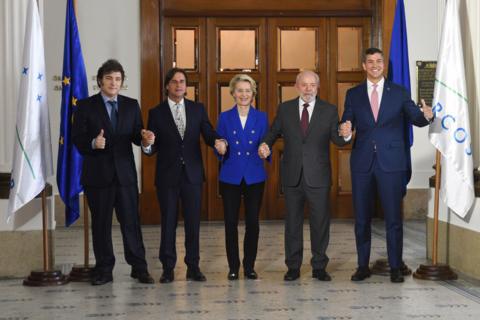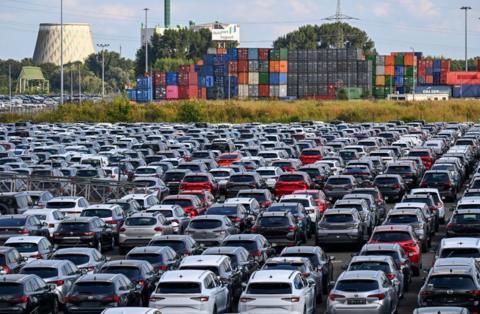With the two blocs covering 700 million consumers and around 20% of global economic output, leaders from both sides are hoping that will grow if the deal comes into force.
The EU says 60,000 of its companies are also exporting to Mercosur members, and half of those are small businesses.
Talks first began in the year 2000. A previous agreement in 2019 didn't come into force after EU members failed to ratify it amid concerns over environmental protection including sustainable farming practices and deforestation.
Trade policy is negotiated by the European Commission rather than its member states but France, Italy and Poland have all expressed reservations about the current agreement and the challenge for Brussels will be to get them all to ratify it.
Farmers in France and Poland have expressed concern that they will be subject to unfair competition because European rules on their industry are stricter and more expensive to adhere to than those of competitors in South America.
In a defiant social media post shortly after the announcement was made France's trade minister Sophie Primas said: "What is happening in Montevideo is not a signing of the agreement but simply the political conclusion of the negotiation. This does not bind the member states."
She added that "France will fight at every stage alongside the member states that share its vision."
The possibility of boosting foreign trade will be particularly welcomed by Germany whose exporters have been struggling amid a wider economic slowdown.
Government spokeswoman Christiane Hoffmann said the deal was "a unique opportunity for an agreement that we must not miss" and that Germany was working to find a compromise over French concerns.

